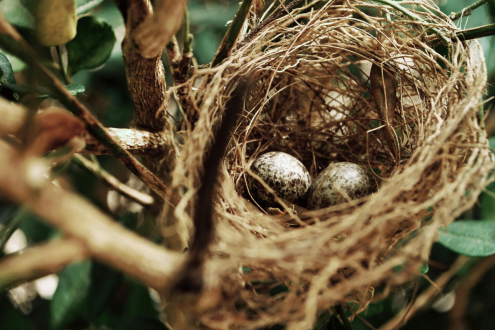Can mindfulness make you a better writer?
A sceptical Anita Chaudhuri finds out…

‘You are now standing on a beach looking out over the ocean. The sand is soft and white. The sea is calm and a brilliant turquoise. You feel the warmth of a hot sun overhead seeping through you, relaxing you even more deeply, as you let go of the everyday world….’
Good riddance everyday world, this is the life. Only in reality I’m not basking on golden sand at a ritzy five-star resort, I’m in a conference room in London’s Notting Hill where author Julia McCutchen’s beautiful voice is leading us through a guided meditation. In her forthcoming book Conscious Writing, she suggests that mindfulness can make writing easier and more enjoyable.
To be honest I was skeptical about this before I arrived. All very well to make such claims if you don’t have to write for a living, facing a barrage of daunting deadlines. That said, I find myself drifting off into a lovely daydream without a care in the world when abruptly I’m given the instruction: ‘Pick up your writing tools and begin your writing now…’
I sit up with a jolt and stare at the blank page of my Moleskine. Reluctantly I force myself to write something, anything, just to look busy. ‘What am I doing here? Why am I doing this? What time is it? Why is my handwriting illegible, even to me?’ I write stream of consciousness for a minute or so. Eventually, though, my mind drifts on to topics beyond the here and now. Time passes. Scribble scribble. Out of my seemingly random words, very slowly and grudingly new ideas start to bubble up.
Amazingly, by the time McCutchen announces that time’s up, I have written a blog post – never mind that I don’t even have a blog – about a topic I’ve never explored before. And ideas for several more posts on the same theme, for my non-existent blog, emerge effortlessly. Where did that all come from?
According to McCutchen, mindfulness can help us to ‘park’ the everyday self before we start writing. Following a guided meditation creates what she calls ‘a conscious writing sanctuary’ where you are better able to draw upon the rich treasures to be mined in your subconscious mind.
'Stress contracts our creative flow,' says McCutchen, who also advocates a seven-step pre-writing routine that includes setting an intention, mini-yoga postures and mudras – finger patterns that will be familiar to those who practice yoga.
Interestingly, she doesn’t only advocate this process for the ‘stream of consciousness’ chaos of writing a first draft. She maintains it is just as effective for revisions, line-editing and completing manuscripts as well. The key thing is to set a clear intention before beginning your writing session.
I have used a pared-down version of her method in the weeks since the workshop and I have to admit that the ritual of hushing your mind before hitting the laptop keyboard really does seem to work.
McCutchen believes that the actual process of writing itself is beneficial. Or as she puts it ‘The true reward is not what we write but who we become from doing the writing.’ Who knows what I will become in the coming months, but I know I have already become a much calmer, less grumpy, writer.
Four steps to inspiration
1. Create a conscious writing ‘sanctuary’ – either set a timer for 15 minutes (longer if you want), or cue up a piece of instrumental music. Ask for insight about what subject you should write about.
2. Use free writing to work towards a point where a decision feels right and creates a flutter of excitement.
3. If you’ve been pondering the question of what to write about for some time, give yourself permission to come up with a decision that feels ‘good enough for now’. Sometimes you just need to dive in and commit to something in order to move forwards.
4. Finally on a fresh page, summarise what you’ve decided to write and the core message you wish to convey.
Conscious Writing by Julia McCutchen (Hay House, £10.99)
Photograph: iStock










